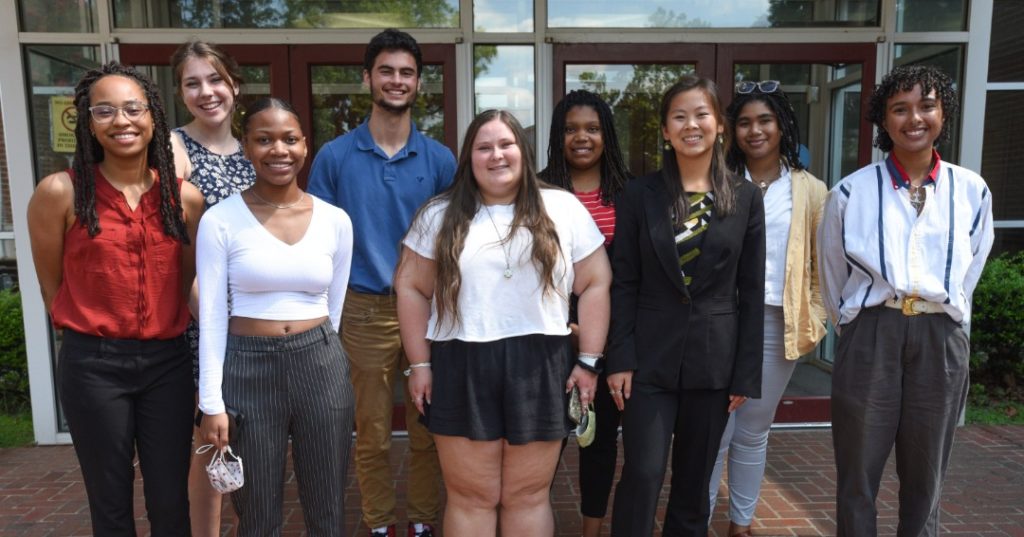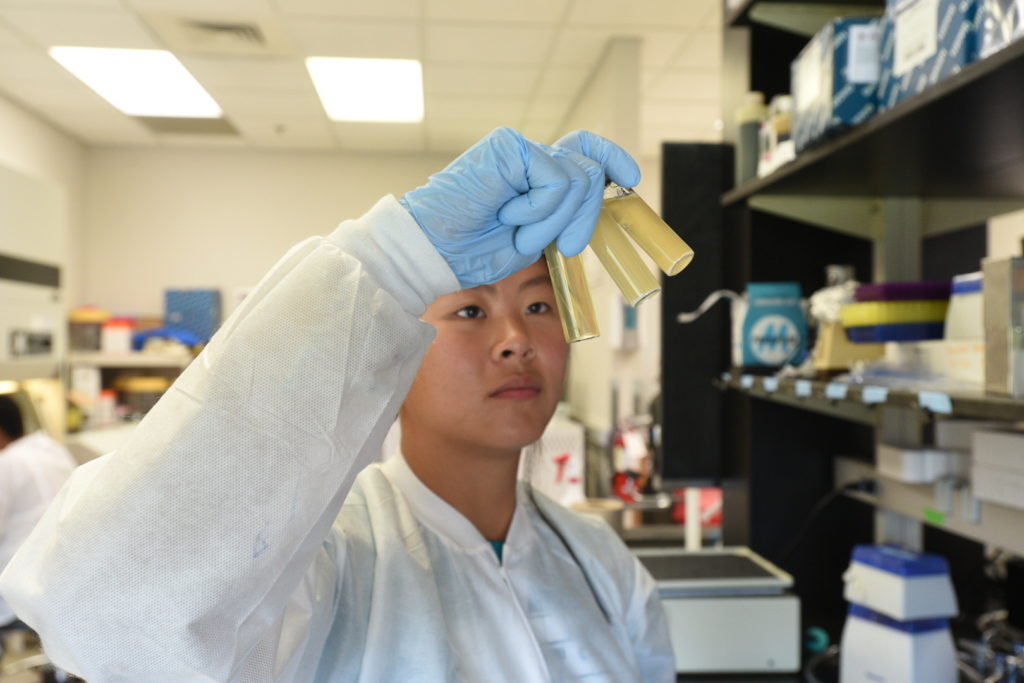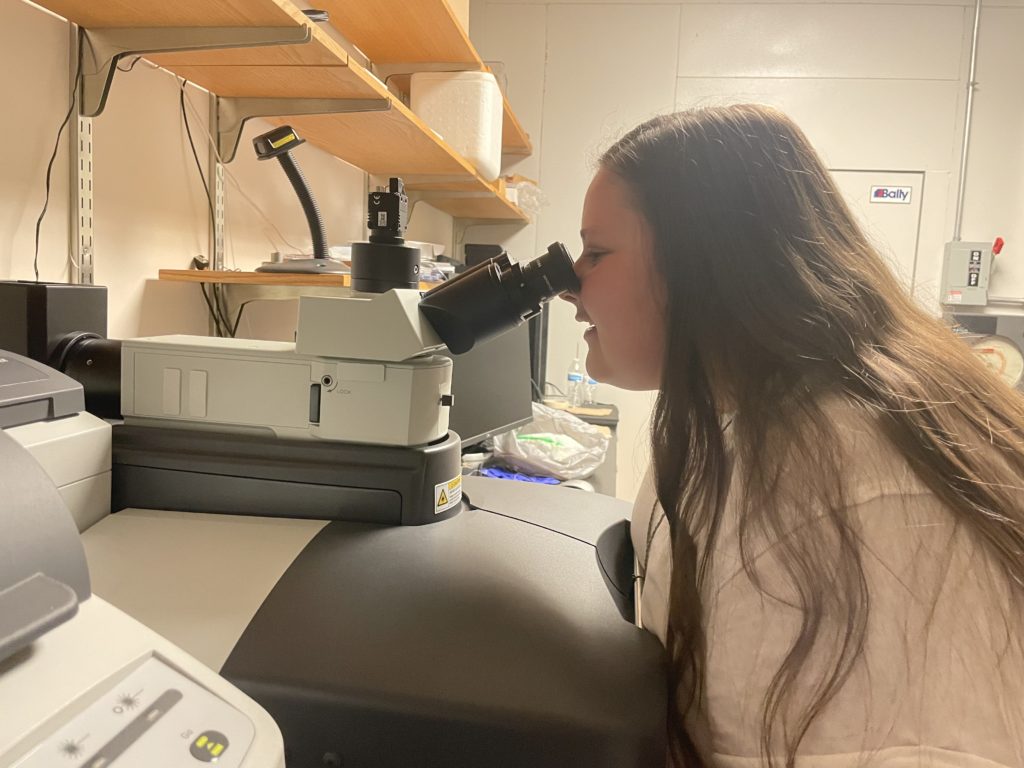
The NOAA LMRCSC Research Experiences for Undergraduates internship program took place this summer on the campus of The University of Maryland Eastern Shore. The college research program was able to safely return to campus after a one-year hiatus due to the COVID-19 pandemic in 2020. The educational initiative serves to provide underclassmen with internship opportunities in research areas that align with students’ career goals.
This summer, nine college sophomores and juniors spent ten weeks completing lab and fieldwork and research in a host of settings. Students representing nine institutions from Maine to California were each assigned a faculty mentor and graduate student to help navigate them through the research process. Interns conducted lab work consisting of biological and ecological studies of fish, invertebrates and microbes. Students collaborated with faculty, upperclassmen, and their peers while learning how to properly perform research and fieldwork activities. The internship not only encouraged students to create good work; however, it also taught attendees how to effectively communicate and network in a professional setting.

“Feedback from mentors has been really good,” stated Porsha Reynolds, a neuroscience and environmental science major at St. Michaels College, Vermont. “Overall, I’ve had a good experience. The research and feedback from mentors have been really positive.”
The Research Experiences for Undergraduates Program, also known as the REU Program, is an initiative created and supported by the National Science Foundation. Since 2009, the NOAA LMRCSC has participated in the student initiative and provided research opportunities based in the ocean sciences to undergraduates from across the country. Each year, approximately nine undergraduate students are selected to stay on the campus of a REU site to participate in science, research and field activities. The paid internship aims to pique the interest of young individuals and encourage them to pursue careers in the STEM fields.
The summer 2021 REU program served as a great way for underclassmen to gain knowledge and experience in hands-on research. In addition, program participants also took trips to the Maryland Coastal Bays, Pocomoke State Park and Blackwater National Wildlife Refuge, where interns were able to observe wildlife on the land and in the water.

When asked about the impact that the REU program had, interns agreed that the knowledge they gained allowed for an enhanced experience.
“I learned a lot of valuable skills,” stated intern Martin Murphy. “I learned some great communication skills and I learned the ins and outs of research and how intricate it can be. It really just opened my eyes to the real world of scientific research.”

